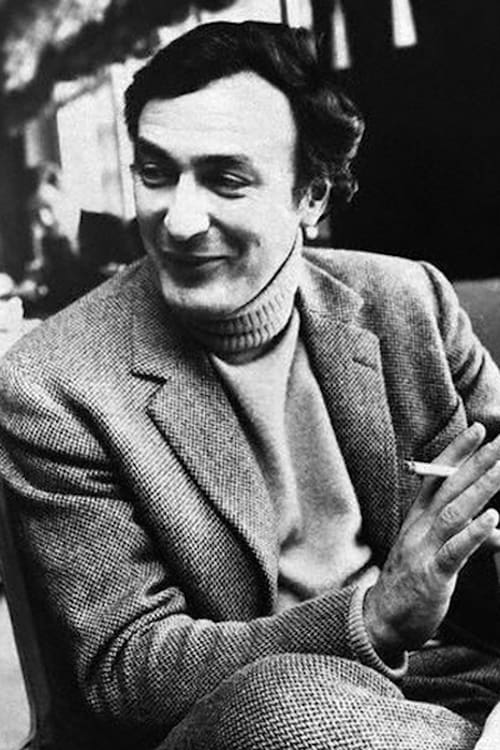
William Klein
Nascimento : 1926-04-19, New York City, USA
Morte : 2022-09-10
História
From Wikipedia, the free encyclopedia.
William Klein (April 19, 1926 – September 10, 2022) was a photographer and filmmaker noted to for his ironic approach to both media and his extensive use of unusual photographic techniques in the context of photojournalism and fashion photography.
Trained as a painter, Klein studied under Fernand Léger and found early success with exhibitions of his work. However, he soon moved on to photography and achieved widespread fame as a fashion photographer for Vogue and for his photo essays on various cities. Despite having no training as a photographer, Klein won the Prix Nadar in 1957 for New York, a book of photographs taken during a brief return to his hometown in 1954. Klein's work was considered revolutionary for its "ambivalent and ironic approach to the world of fashion", its "uncompromising rejection of the then prevailing rules of photography" and for his extensive use of wide-angle and telephoto lenses, natural lighting and motion blur. Klein tends to be cited in photography books along with Robert Frank as among the fathers of street photography, one of those mixed compliments that classifies a man who is hard to classify. The world of fashion would become the subject for Klein's first feature film, Who Are You, Polly Maggoo?, which, like his other two fiction features, Mr. Freedom and Le Couple Témoin, is a satire.
Klein directed numerous short and feature-length documentaries and produced over 250 television commercials.
Though American by birth, Klein lived and worked in France since his late teens. His work has sometimes been openly critical of American society and foreign policy; the film critic Jonathan Rosenbaum once wrote that Klein's 1968 satire Mr. Freedom was "conceivably the most anti-American movie ever made".
Description above from the Wikipedia article William Klein, licensed under CC-BY-SA, full list of contributors on Wikipedia.

Himself
Kiroku(RECORD)| Movie in LONDON, DAIDO MORIYAMA” is a Documentary Film about the acclaimed photographer Daido Moriyama's journey through his own legendary personal photo magazine “Kiroku”.

Self
Delphine Seyrig, an extraordinary woman and actress, died on October 15, 1990. From "Last Year at Marienbad" by Alain Resnais to "India Song" by Marguerite Duras, she played in 34 films for cinema, 13 films for television and 33 plays. Jacqueline Veuve, filmmaker and friend of Delphine Seyrig, wanted to break the silence that has fallen on her memory by making a documentary that traces with emotion and subjectivity the life of the mythical actress, the fierce feminist but also the simple friend.
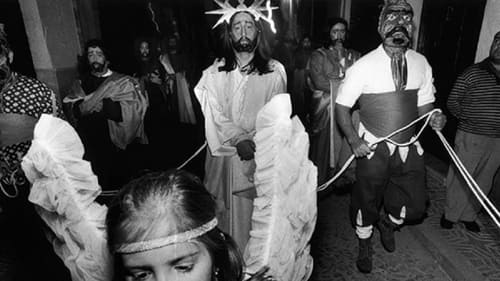
Director of Photography
Filmmaker William Klein takes on Handel’s Messiah and has created a concert film that mixes the sacred with the profane. Performed in its entirety, the oratorio provides a narrative of Christ’s nativity, passion and resurrection juxtaposed against images of absurdities and abuses against the human species across the world. The film reveals a wide array of worshippers from the Bodybuilders of Christ to the Lavender Light Gay and Lesbian Interracial Choir to the Dallas police choir.

Director
Filmmaker William Klein takes on Handel’s Messiah and has created a concert film that mixes the sacred with the profane. Performed in its entirety, the oratorio provides a narrative of Christ’s nativity, passion and resurrection juxtaposed against images of absurdities and abuses against the human species across the world. The film reveals a wide array of worshippers from the Bodybuilders of Christ to the Lavender Light Gay and Lesbian Interracial Choir to the Dallas police choir.

Director
The legendary photographer William Klein has designed this fascinating book on fashion photography, with a selection of images from throughout his career, including material from his films. Though Klein claims roots in areas as diverse as painting, street photography, the tabloids, and B movies, his fashion work has been known since the fifties and sixties and has been a constant in his career.

Self (archive footage)
The legendary photographer William Klein has designed this fascinating book on fashion photography, with a selection of images from throughout his career, including material from his films. Though Klein claims roots in areas as diverse as painting, street photography, the tabloids, and B movies, his fashion work has been known since the fifties and sixties and has been a constant in his career.

Director
Part II of a compilation movie featuring European T.V. commercials directed by a variety of well-known directors from across Europe and the U.S. Compiled and produced by Jean-Marie Boursicot.

Director
Highlighting the work of emerging fashion world all-stars like Karl Lagerfeld, Jean-Paul Gaultier and agnès b., Klein surveys the state of women’s fashion in the 1980s with this eccentric hybrid documentary scored by Serge Gainsbourg.

Director
For the very first time, a documentary team is allowed to shoot sequences in the backstage of the French Open of tennis of Roland-Garros.

Director
Klein goes on the hunt for Little Richard, the legendary ‘Architect of Rock and Roll’, who quit show business in 1957 at the height of his fame to become an evangelist. Richard was then lured back to secular music in the 1960s and 70s, but the excesses of stardom led him to a second retreat from the stage. For years he struggled to reconcile his religious calling with his flamboyant rock-and-roll persona, and at the time of filming, Klein finds Little Richard selling ‘Black Heritage Bibles’ for a Nashville couple. Sensing that his image is being exploited, Richard quits his sales position and deserts the film. But Klein turns this into an opportunity to reconstruct Richard’s personality through the words of his family and friends in his native Macon, Georgia, and to celebrate his status as a cultural icon by filming scores of Little Richard impersonators and adoring fans in Hollywood.

Director
Filmmaker William Klein documents the Paris student riots that occurred in May of 1968.

Cinematography
Filmmaker William Klein documents the Paris student riots that occurred in May of 1968.
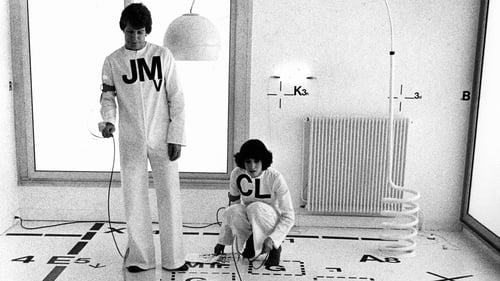
Cinematography
In 1977 France, the Ministry of the Future chooses two “normal,” white, middle-class citizens, Claudine and Jean-Michel, for a national experiment. They will be monitored and displayed on television for six months in a model apartment outfitted with state-of-the-art products and nonstop surveillance—the template for “a new city for the new man".

Writer
In 1977 France, the Ministry of the Future chooses two “normal,” white, middle-class citizens, Claudine and Jean-Michel, for a national experiment. They will be monitored and displayed on television for six months in a model apartment outfitted with state-of-the-art products and nonstop surveillance—the template for “a new city for the new man".

Director
In 1977 France, the Ministry of the Future chooses two “normal,” white, middle-class citizens, Claudine and Jean-Michel, for a national experiment. They will be monitored and displayed on television for six months in a model apartment outfitted with state-of-the-art products and nonstop surveillance—the template for “a new city for the new man".
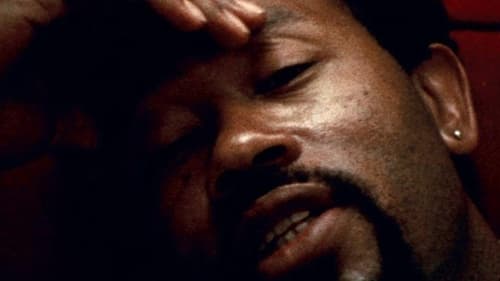
Writer
The portrait of Eldridge Cleaver, the "Minister of Information" for the Black Panthers movement, in exile in Algiers.

Director
The portrait of Eldridge Cleaver, the "Minister of Information" for the Black Panthers movement, in exile in Algiers.
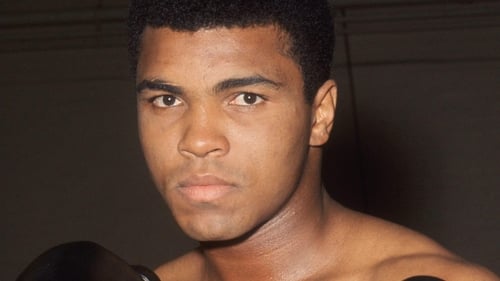
Director of Photography
Universally accepted as a true icon of the 20th century, Muhammad Ali’s phenomenal achievements spanned sport, politics and religion. One man – photographer William Klein had comprehensive access to the events that shaped Ali’s legend. In 1964, the young gregarious Cassius Clay successfully defeated the seemingly invincible Heavyweight Champion of the World Sonny Liston – the manner of Clay’s victory and his amazing persona made him an instant superstar. Through this incredible period, and Clay’s subsequent rematches with Liston, William Klein enjoyed unrivalled access top Clay’s camp – witnessing at first hand Cassius Clay becoming Muhammad Ali and angering the American people with his allegiance to Islam. Forward to Zaire 1974, and the return of Muhammad Ali to the world stage to face another invincible champion George Foreman. As Ali reclaimed the crown for a second time, Klein was ever present, capturing the full story at close quarter.

Director
Universally accepted as a true icon of the 20th century, Muhammad Ali’s phenomenal achievements spanned sport, politics and religion. One man – photographer William Klein had comprehensive access to the events that shaped Ali’s legend. In 1964, the young gregarious Cassius Clay successfully defeated the seemingly invincible Heavyweight Champion of the World Sonny Liston – the manner of Clay’s victory and his amazing persona made him an instant superstar. Through this incredible period, and Clay’s subsequent rematches with Liston, William Klein enjoyed unrivalled access top Clay’s camp – witnessing at first hand Cassius Clay becoming Muhammad Ali and angering the American people with his allegiance to Islam. Forward to Zaire 1974, and the return of Muhammad Ali to the world stage to face another invincible champion George Foreman. As Ali reclaimed the crown for a second time, Klein was ever present, capturing the full story at close quarter.
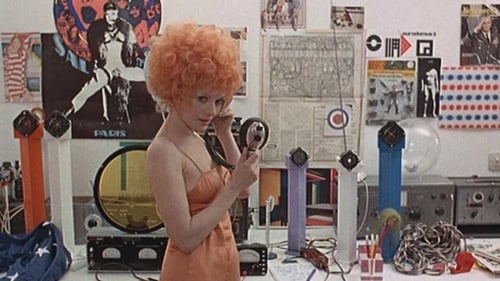
Writer
Mr. Freedom, a bellowing good-ol'-boy superhero decked out in copious football padding, jets to France to cut off a Commie invasion from Switzerland. A destructive, arrogant patriot in tight pants, Freedom joins forces with Marie Madeleine to combat lefty freethinkers, as well as the insidious evildoers Moujik Man and inflatable Red China Man, culminating in a star-spangled showdown.

Director
Mr. Freedom, a bellowing good-ol'-boy superhero decked out in copious football padding, jets to France to cut off a Commie invasion from Switzerland. A destructive, arrogant patriot in tight pants, Freedom joins forces with Marie Madeleine to combat lefty freethinkers, as well as the insidious evildoers Moujik Man and inflatable Red China Man, culminating in a star-spangled showdown.
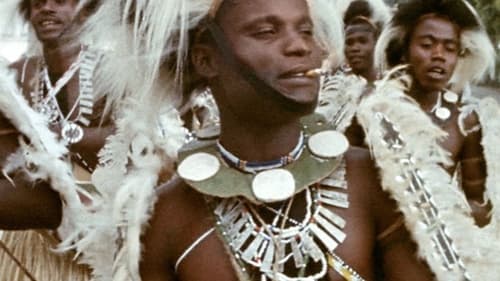
Cinematography
Festival panafricain d'Alger is a documentary by William Klein of the music and dance festival held 40 years ago in the streets and in venues all across Algiers. Klein follows the preparations, the rehearsals, the concerts… He blends images of interviews made to writers and advocates of the freedom movements with stock images, thus allowing him to touch on such matters as colonialism, neocolonialism, colonial exploitation, the struggles and battles of the revolutionary movements for Independence.

Director
Festival panafricain d'Alger is a documentary by William Klein of the music and dance festival held 40 years ago in the streets and in venues all across Algiers. Klein follows the preparations, the rehearsals, the concerts… He blends images of interviews made to writers and advocates of the freedom movements with stock images, thus allowing him to touch on such matters as colonialism, neocolonialism, colonial exploitation, the struggles and battles of the revolutionary movements for Independence.
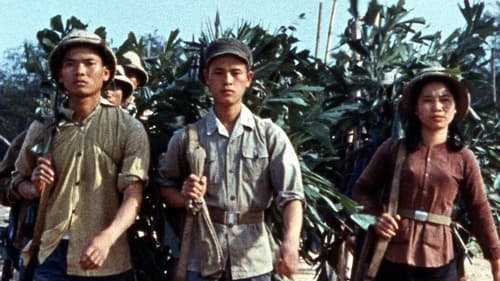
Director
In seven different parts, Godard, Ivens, Klein, Lelouch, Marker, Resnais, and Varda show their sympathy for the North-Vietnamese army during the Vietnam War.
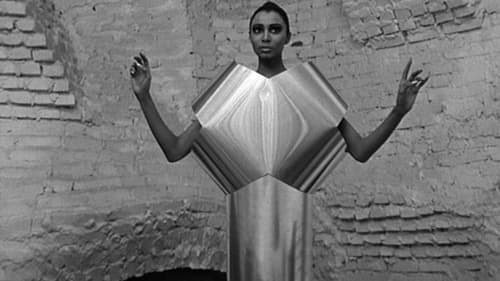
Dialogue
In this excoriating satire of the fashion industry, Polly Maggoo is a 20-year-old Brooklyn-born fashion model in Paris, on the runway at the big shows where magazine editor Ms. Maxwell is the reigning opinion maker. The ridiculous passes for sublime. Polly becomes the subject of an episode of a vapid TV news documentary series called "Qui êtes-vous?" and is pursued by the filmmaker and by the prince of Borodine, a small country in the Soviet bloc.

Screenplay
In this excoriating satire of the fashion industry, Polly Maggoo is a 20-year-old Brooklyn-born fashion model in Paris, on the runway at the big shows where magazine editor Ms. Maxwell is the reigning opinion maker. The ridiculous passes for sublime. Polly becomes the subject of an episode of a vapid TV news documentary series called "Qui êtes-vous?" and is pursued by the filmmaker and by the prince of Borodine, a small country in the Soviet bloc.

Director
In this excoriating satire of the fashion industry, Polly Maggoo is a 20-year-old Brooklyn-born fashion model in Paris, on the runway at the big shows where magazine editor Ms. Maxwell is the reigning opinion maker. The ridiculous passes for sublime. Polly becomes the subject of an episode of a vapid TV news documentary series called "Qui êtes-vous?" and is pursued by the filmmaker and by the prince of Borodine, a small country in the Soviet bloc.

Director
Portrait of American boxer Cassius Clay.
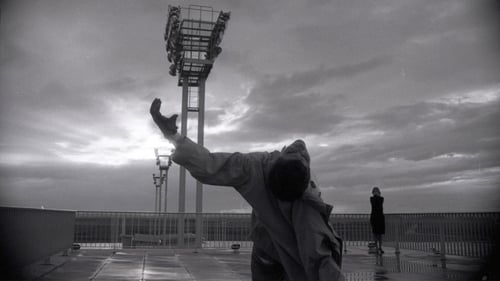
A man from the future
Na hipotética Paris devastada pela Terceira Guerra Mundial, os poucos humanos sobreviventes pesquisam uma forma de viajar no tempo, para assim poderem mandar alguém para buscar comida, água e talvez uma solução para a terrível posição em que se encontram. Um homem é assombrado por uma vaga lembrança da infância que se provará desastrosa.

Editor
Uma reflexão experimental sobre os letreiros de Times Square e a publicidade icônica, o primeiro filme de Klein capta os aspectos simultaneamente decadentes e deslumbrantes da Great White Way de Nova Iorque.

Director of Photography
Uma reflexão experimental sobre os letreiros de Times Square e a publicidade icônica, o primeiro filme de Klein capta os aspectos simultaneamente decadentes e deslumbrantes da Great White Way de Nova Iorque.

Director
Uma reflexão experimental sobre os letreiros de Times Square e a publicidade icônica, o primeiro filme de Klein capta os aspectos simultaneamente decadentes e deslumbrantes da Great White Way de Nova Iorque.

Director
William Klein interviews Hollywood hopefuls.

